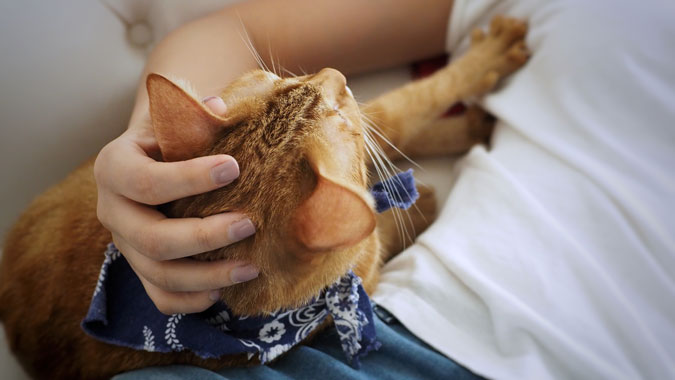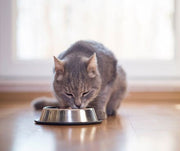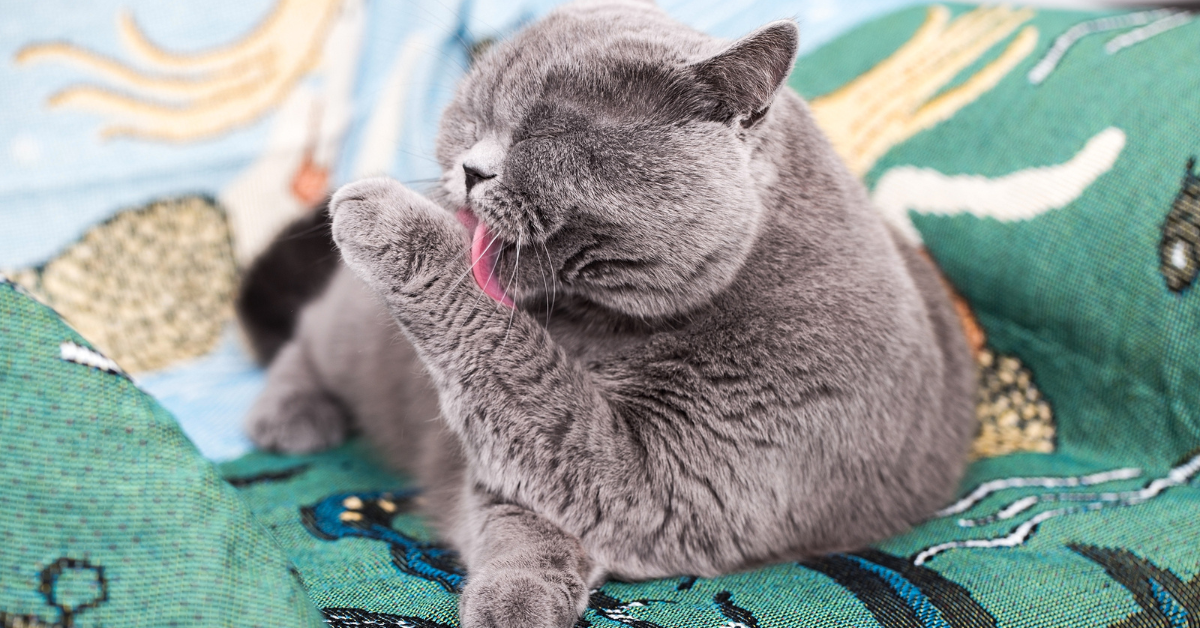Why Do Cats Purr?

What's more cozy that having a purring kitten cuddle up next to you? Purring seems to be the most obvious sign that your cat is content, but what causes it? Why and how exactly do cats purr? If this is something you've ever wondered about your feline friend, read on!
WHAT IS PURRRING, EXACTLY?
Before we can understand why our cats purr, it is important to know exactly what purring truly is. Purring is essentially the relaxing of a cat's vocal cord muscles. When a cat finds a sense of relaxation, the muscles surrounding their vocal cords vibrate as they inhale and exhale.
CONTENTMENT
Cats are smart creatures and have learned from humans that they gain more attention when they purr. A cat normally purrs when they are sitting on their owner's lap, soaking in all the love. Petting and enjoying time with your cat often triggers this reaction.
COPING MECHANISM
When you are feeling down or are dealing with pain, whether physical, mental, or otherwise, do you have something you do that helps you cope? The answer is likely yes. As humans, we have a number of ways we deal with pain or being uncomfortable. For example, some people hum or sing to help them cope with stress. This is what cats do as well. Scientists have also deduced that various frequencies associated with purring help to steady breathing, reduce pain, and even build muscles. A laboring cat will sometimes purr in the midst of some of their worst pain.
CALMING DOWN
Sometimes, cats will purr at some of the oddest times. Shelter owners report cats purring without anyone else around. Veterinarians often see cats purring on examination tables when they are obviously frightened. Purring is also a way for cats to deal with an uncomfortable situation. Cats get nervous when they are out of their normal routine, which is why they might start purring in stressful situations. This coping mechanism is very similar to anxiety-related behaviors. For example, some people may have nervous tics such as tapping their fingers or jiggling their leg up and down when stressed. Purring can often serve as the same solution for cats, and some studies suggest that purring may even have healing properties.

GUIDING THEIR KITTENS
Lastly, and instinctually, purring helps newborn kittens get to know their mother. Kittens are born blind and deaf, but the reverberations from purring allows the kittens to find their mother, who uses purrs as a directional reference or a call for her babies, making it easier for them to follow or locate her. Mother cats often use purring as a sort of "lullaby" for their newborn litter.
CONCLUSION
If your cat is alone, seemingly unharmed, and purring, they might be perfectly content, but sometimes their purring could the result of pain or anxiety. Ensure that you understand your cat's anxiety levels and you'll likely be able to tell whether your cat is purring with content or stress. Cats are remarkably like humans with their emotions, so it is important that pay attention to your cat's body language and purrs.
Previous article

Related posts
View all-

Should You Bathe Your Cat? Everything You Need to Know About Cat Hygiene
When it comes to cat hygiene, a common question among cat owners is, "Should you bathe your cat?" Understanding how to care for felines, especially bathing cats properly, is crucial for maintaining their overall health. Most cats are fastidious groomers, but specific scenarios like long-haired cats getting dirty or skin irritations, might require a bath.
Read Article -

Choosing the Right Grooming Tools for Your Cat's Coat Type: A Comprehensive Guide
Grooming your cat might seem straightforward, but it’s more than just a quick brush here and there. Many cat owners struggle with tangled fur, shedding, or even the occasional scratch during grooming sessions. Read Article -

Puppy Chew Toys: Essential Tips for Choosing the Right Toys for Your Growing Pup
Puppies love to chew. It’s a natural instinct that helps them explore their world and soothe the discomfort of teething. But that harmless behavior can turn into chewed-up shoes and furniture without the right toys. Pet owners often find themselves overwhelmed by the endless options of puppy chew toys, unsure of what will keep their growing pup entertained while supporting their health. Read Article




